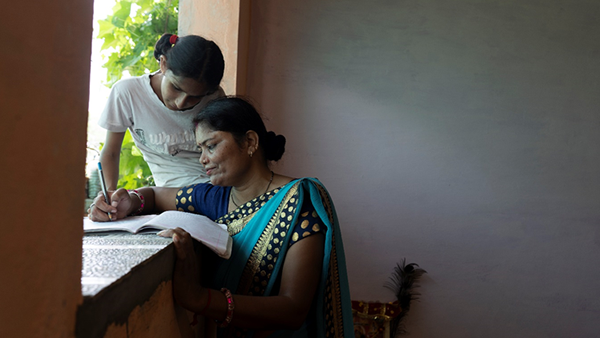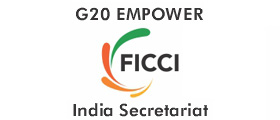“There is no age for studying. Learning can happen anytime. It is an investment for the future," says Nisha Chauhan, Ward Member of the local Gram Panchayat in Kishanganj block of Baran district in Rajasthan.
Nisha is one of the 350 women in Baran district, who re-connected with education after a long gap. Most of these women had discontinued their education for various reasons, including financial constraints, early marriages, and their caregiving burdens.
In 2019 NGO Manjari Foundation, with funding from the Second Chance Education through another non-governmental organisation PRADAN, started the adult education for women initiative in some districts of Rajasthan, Madhya Pradesh, Uttar Pradesh and Uttarakhand.
The programme allows re-entry into education for these women through the open schooling system. Support is also provided to those who want to pursue a professional course after passing their senior secondary exams.
“It was difficult to convince women to pick up their studies after over 20 years. There was resistance from families and even children. It required lot of counselling before they agreed to join the programme,” says Renu, an SCE educator.
The foundation has also trained women in professional courses. Priya, who is now in the first year of college, trained as a `business sakhi’ to help women small entrepreneurs with marketing and selling their products. She is also working part-time with a private telecommunication company and earns INR 5,000 a month. She hopes to get a regular job after completing her graduation.
In Gaya district of Bihar, as many as 300 women were re-linked with the schooling system in 2019 of which 213 managed to clear the Class 10 and 12th examination. In Saidapur village of Tankuppa block, a group of 10 to 12 girls are in the class. Here, the project is being implemented by PRAN (Preservation and Proliferation of Rural Resources and Nature) with funding from Second Chance Education and overall implementation support from PRADAN. Of the 246 enrolled in 2019, as many as 213 gave exams.
“My son said that I will never be able to pass the exams,” says Lalita Devi, a programme participant. But she proved him – and the women who laughed at her for reconnecting with education at such an advanced age - wrong. Today, she works as the secretary of the Pragatisheel Jeevika Mahila Sangh, a Cluster-level Federation (CLF) and earns INR 3,500 per month. She also took a loan from the SHG to educate her children and opened a shop in her house to increase her income.
In Muzaffarpur, 324 women had enrolled for Class X but only 200 were actively studying. As many as 130 passed the examination in one attempt while others are re-attempting. Of these 130, more than 30 are gainfully employed. Similarly, of the 42 who had enrolled for Class XII, through the Bihar Board of Open School, 28 have passed, some of whom have expressed the desire to study further.
 |
 |
These stories of women-led development have been compiled by UN Women India. All copyrights to the stories and images are held by UN Women India Country Office dated December 2022. |

